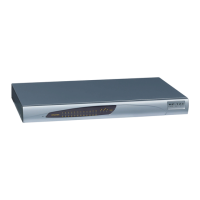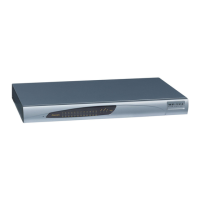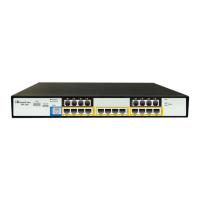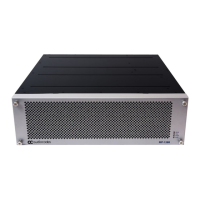of the parameter 'Destination Type', the IP Group is still used -
only for determining the IP Profile or outgoing SRD. If neither
IP Group nor SRD are defined in this table, the destination
SRD is determined according to the source SRD associated
with the Source IP Group (configured in the IP Group table,
see 'Configuring IP Groups' on page 173). If this table does
not define an IP Group but only an SRD, then the first IP
Group associated with this SRD (in the IP Group table) is
used.
If the selected destination IP Group ID is type SERVER, the
request is routed according to the IP Group addresses.
If the selected destination IP Group ID is type USER, the
request is routed according to the IP Group specific database
(i.e., only to registered users of the selected database).
If the selected destination IP Group ID is ANY USER ([-2]), the
request is routed according to the general database (i.e., any
matching registered user).
Destination Address
[IP2IPRouting_DestAddress]
Defines the destination IP address (or domain name, e.g.,
domain.com) to where the call is sent.
Notes:
This parameter is applicable only if the parameter 'Destination
Type' is set to 'Dest Address' [1].
When using domain names, enter a DNS server IP address or
alternatively, define these names in the 'Internal DNS Table'
(see 'Configuring the Internal SRV Table' on page 123).
Destination Port
[IP2IPRouting_DestPort]
Defines the destination port to where the call is sent.
Destination Transport Type
[IP2IPRouting_DestTransportT
ype]
Defines the transport layer type for sending the call:
[-1] Not Configured (default)
[0] UDP
[1] TCP
[2] TLS
Note: When this parameter is set to -1, the transport type is
determined by the parameter SIPTransportType.
Cost Group
[IP2IPRouting_CostGroup]
Assigns a Cost Group to the routing rule for determining the cost
of the call. To configure Cost Groups, see 'Configuring Cost
Groups' on page 167.
By default, no Cost Group is assigned to the rule.
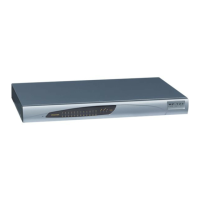
